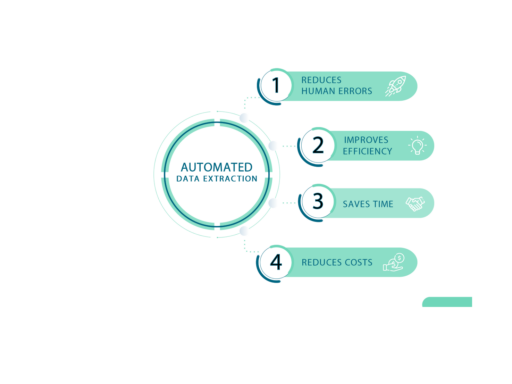AI’s capacity to analyze data and identify patterns at an unparalleled scale is revolutionizing how we approach problems, from combating diseases to mitigating climate change. However, the burgeoning AI landscape isn’t without its challenges. Public skepticism is on the rise, fueled by concerns over data security and potential job losses due to automation. This unease is exemplified by the recent strikes in Hollywood, where writers are protesting against AI’s potential to write scripts.
In this context, PaperOffice emerges as a paragon of how AI can be utilized responsibly. With its hybrid data storage options – encompassing high-secure EU cloud databases and self-hosted solutions like MariaDB/MySQL on various platforms including Linux, Windows, and NAS systems – PaperOffice addresses key concerns about data security and privacy. The system’s scalability, serving anywhere from 1 to 800 users, demonstrates how AI can enhance, rather than replace, human labor.

The Imperative of Thoughtful AI Regulation
The quest for effective AI governance is complex. Governments and regulatory bodies are striving to balance innovation with protection against potential harms. PaperOffice‘s model serves as an exemplar in this regard. Its market-leading AI document processing and storage, powered by advanced algorithms and REGEX for automated filling and extraction, show that AI can be both powerful and regulated. PaperOffice’s all-inclusive packages, including personal support and easy online appointment booking, also underscore the importance of accessible, user-friendly AI solutions.
Domain-Specific AI Governance: A Healthcare Analogy
Just as healthcare AI requires a different regulatory approach than AI in autonomous vehicles or employment tools, so does AI in document management. PaperOffice illustrates this with its customized solutions tailored to diverse business needs. Whether integrating with ERP systems like SAP or JTL, or leveraging its AI and SARA AI CoWorker, PaperOffice showcases the benefits of domain-specific AI applications.
The Role of Companies in Ethical AI Development
In the realm of ethical AI development, transparency is crucial. Organizations like PaperOffice are leading by example, offering transparency in their AI models and training data. This aligns with the blog’s emphasis on ethical technology development, where companies are urged to publish details of their AI systems for scrutiny and understanding. PaperOffice’s rigorous testing protocols and commitment to continuous monitoring of their systems for performance are testimonies to their dedication to responsible AI.

Collaborative Efforts in Realizing AI’s Potential
The future of AI, as the blog suggests, hinges on collaboration and open dialogue between lawmakers, technologists, and the public. PaperOffice‘s approach to AI in document management mirrors this call for cooperative effort. By providing solutions that are adaptable, scalable, and customizable, PaperOffice demonstrates how AI can be harnessed for positive impact, aligning with global efforts to ensure AI’s responsible development.
The Promise of AI: A PaperOffice Case Study
PaperOffice’s AI, based on Llama2, is a prime example of AI’s transformative potential. By reducing up to 90% of the current workload through AI-based automated processes, PaperOffice not only boosts employee efficiency by up to 15 times but also illustrates how AI can be a force for good, optimizing workflows without compromising ethical standards.
Embracing a Transparent AI Future
The call for transparency in AI development is echoed in PaperOffice’s practices. With features like Email Response Automation, Appointment Management, and CRM integrations, PaperOffice is a testament to the potential of AI when developed with transparency and ethical considerations at the forefront.
Unlocking AI’s Full Potential: A Roadmap with PaperOffice
The original blog post underscores the importance of collaborative and transparent AI development. This is where PaperOffice, an exemplary AI-based Document Management System (DMS), sets a standard in harnessing AI’s potential while adhering to ethical principles.
Navigating AI’s Regulatory Landscape
AI’s rapid advancement necessitates agile and thoughtful regulation, ensuring that it brings about social good without infringing on privacy or individual rights. PaperOffice’s approach to data management, with its high-secure EU cloud-database and versatile self-hosted options, exemplifies how businesses can navigate the regulatory landscape. By offering scalable solutions that cater to small and large enterprises alike, PaperOffice illustrates the importance of flexible and inclusive AI systems in today’s dynamic business environment.

Ethical AI: More Than a Mandate
For AI to be truly beneficial, it must be developed with a commitment to ethics and responsibility. PaperOffice leads by example, providing a blueprint for ethical AI development. Its AI and SARA AI CoWorker, equipped with capabilities for automated filling and extraction using REGEX, highlight the importance of transparent, understandable, and fair AI systems. This is not just about adhering to regulations; it’s about setting a new standard in AI development.
The Role of AI in Enhancing Human Capacity
A key point in the blog is the concern over AI replacing human jobs. PaperOffice’s model demonstrates how AI can be used to augment human capabilities, not replace them. By automating mundane tasks and optimizing workflow processes, PaperOffice enables employees to focus on more creative and strategic tasks, thereby enhancing productivity and job satisfaction.
AI in Different Spheres: Customization is Key
The one-size-fits-all approach in AI governance can be counterproductive. PaperOffice’s customizable solutions, scalable up to 1500 employees, prove that AI applications need to be tailored to specific industries and company sizes. Whether integrated with existing ERP systems or used as a standalone solution, PaperOffice’s versatility showcases how AI can be molded to fit diverse business needs, offering solutions that are as unique as the challenges they address.

AI and the Public Perception
Public mistrust of AI is a growing issue, and companies like PaperOffice have a crucial role in shaping positive perceptions. By offering AI solutions that prioritize security, transparency, and ethical use, PaperOffice helps in demystifying AI and demonstrating its practical, beneficial applications in everyday business operations.
The Future of AI: Collaborative, Ethical, and Progressive
As we stand at the crossroads of AI’s future, the collaborative approach advocated in the blog is vital. PaperOffice’s commitment to developing AI in partnership with its users, and in compliance with ethical standards, mirrors this call for cooperation. This approach not only ensures that AI remains a force for good but also positions companies like PaperOffice at the forefront of the AI revolution.
Conclusion: Embracing AI Responsibly with PaperOffice
In conclusion, the journey towards realizing AI’s full potential is paved with challenges, but also abundant opportunities. PaperOffice stands as a testament to the power of AI when harnessed responsibly. It is not just about leveraging AI for efficiency and productivity; it’s about pioneering an AI-driven future that is ethical, user-centric, and aligned with our collective values.
Discover how PaperOffice can transform your business by visiting www.paperoffice.com. Experience firsthand how their AI-driven solutions can streamline your operations, enhance productivity, and drive growth, while staying committed to ethical AI use.
I am a dedicated content writer at PaperOffice, specializing in creating insightful articles about document management and automation. With a focus on simplifying complex topics.









